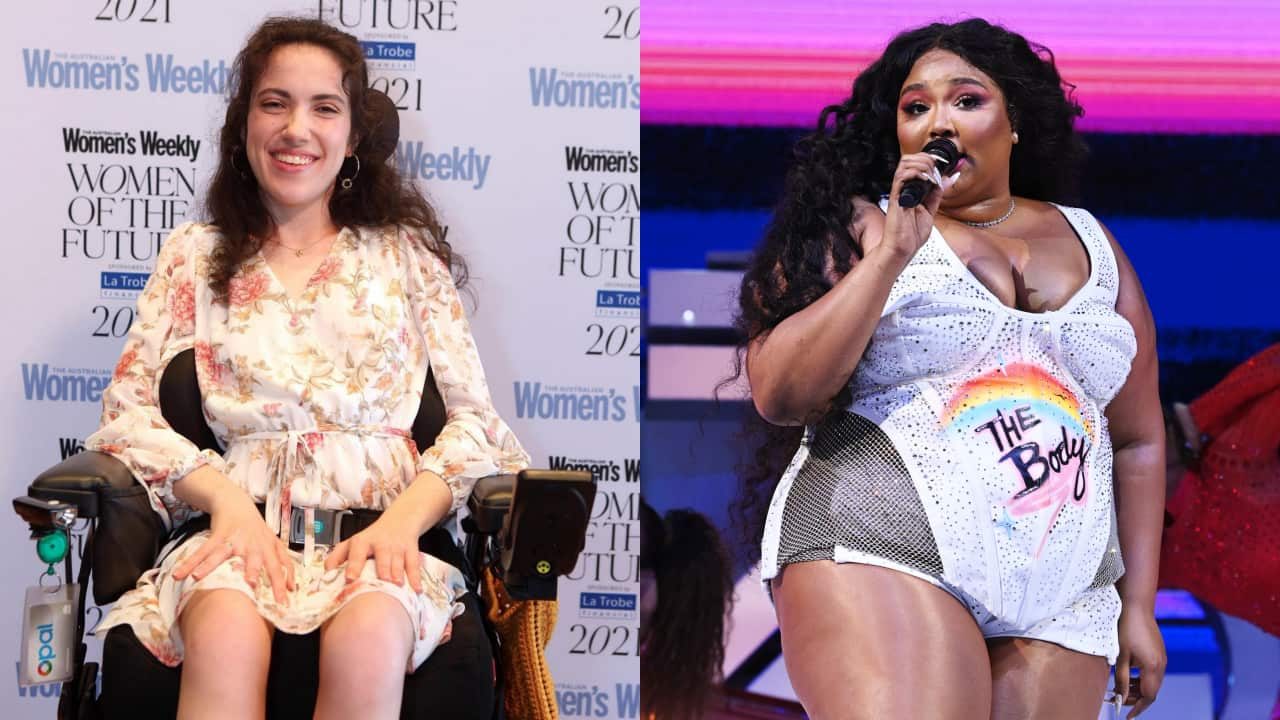Hannah Diviney felt deflated when she first heard the lyric.
The disability advocate, also a long-time fan of Grammy-winning singer and rapper Lizzo, had expected better from the musician, who is seen by many as a champion of inclusivity.
Instead, what she and other fans heard was a derogatory term for people with disability in her newest song 'Grrrls'. A term she said is a slur against a disability which she herself lives with.
"This song, which is ostensibly about female empowerment, also happened to contain a pretty intense ableist slur," she told The Feed.
"I couldn't work out how so many people would have heard this song before it was released and nobody had flagged it with her."

Australian disability advocate Hannah Diviney said she had been disappointed to see the slur in Lizzo's latest song. Credit: Supplied
Colloquially it has been appropriated by some, and in this case, Lizzo, to indicate a loss of control or an emotional outburst.
For Hannah, who lives with spastic diplegia, a form of cerebral palsy, the condition means "unending tightness" in her body and pain in her legs.
Since her ascent to fame, Lizzo has been a fierce advocate of self-acceptance, producing feel-good empowering pop music. The criticism spread quickly after the single dropped on Friday.
"She occupies a really, really important and rare space in the music industry," Hannah said.
It's part of the reason why she felt comfortable calling her out.
On Sunday, Hannah tagged Lizzo in a tweet asking her to "Do better". It was reshared over a thousand times and was among a number of tweets voicing the same criticism.
The message was received, with Lizzo writing on Instagram: "I'm proud to say there's a new version of GRRRLS with a lyric change."
The updated version was released on major music streaming services on Monday, with the offensive term replaced with the line “Hold me back.”
In her Instagram post, Lizzo said she understood the consequences of harmful language, even if she had used it unintentionally.
"Let me make one thing clear: I never want to promote derogatory language,” she wrote on Instagram.
“As a fat black woman in America, I’ve had many hurtful words used against me ... As an influential artist I'm dedicated to being part of the change I've been waiting to see in the world."
Hannah is "blown away" with the outcome and is glad it has been been a positive learning experience. She says Americans in particular had reached out and explained their unfamiliarity with the origins of the term.
"Part of me was a little bit concerned like when I first saw her statement that she might feel defensive or that she might double down because that's kind of the typical position for a lot of people with a profile," Hannah said.
"I was also really grateful that she accepted it, changed it and never made her disabled fans feel invalidated.
"She just really showed how to be a true ally."
Other musicians have also made the same mistake. In the 2015 song 'FourFiveSeconds,' Kanye West was criticised for using the term in his collaboration with Paul McCartney and Rihanna.










